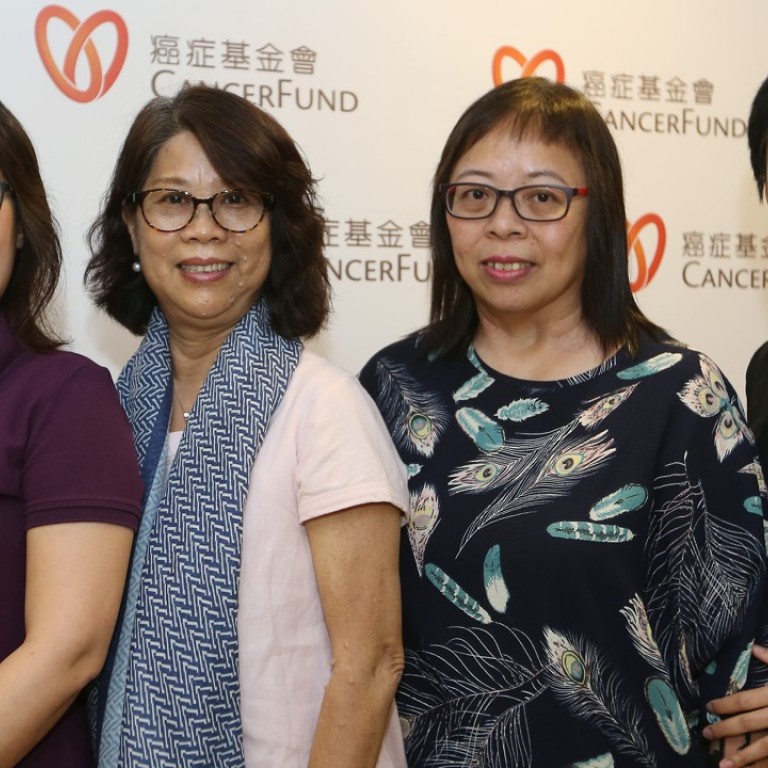
Mental slide of Hong Kong cancer patients and caregivers overlooked, survey finds
Poll results show most sufferers and families only aware about physical challenges
A Hong Kong concern group for cancer sufferers has called for greater awareness of the importance of psychological support after a survey found that only a quarter of patients and their families raised emotional distress as a major problem encountered in the fight against the deadly disease.
The poll on awareness of free cancer support was conducted by Shue Yan University and commissioned by the Hong Kong Cancer Fund, a support organisation.
“We can easily identify problems other than the physical suffering of cancer patients, but they often don’t realise this themselves ... Survey respondents underestimated the importance of cancer support from the community,” Tammy Leung Yuk-chun, director of service at the fund, said.
From April to May, some 1,015 people comprising cancer patients and their families were interviewed in the survey, with 35 per cent of them stating they were aware of physical challenges such as pain and the side effects of medication, while only 24.7 per cent raised issues such as emotional distress and even fewer cited financial pressures and family stress.
The survey also concluded that most respondents were not proactive enough in seeking help.
Treatment for the body and the mind is equally important
While more than 70 per cent of those polled were aware of free cancer support services provided by non-governmental organisations, close to half of them had not used such services, which includes peer support groups and professional counselling.
“The long journey in the fight against cancer can bring tremendous changes to the lives of patients and their families ... Treatment for the body and the mind is equally important,” Leung said.
In 2011, a separate study by the fund and the University of Hong Kong found that the mental wellness of more than 55 per cent of 441 cancer patients and caregivers was at risk.
The fund hoped that in the long run, it would become mandatory for cancer patients in public hospitals to receive recommendations about NGO psychosocial support.
May Wong Wai-mei, who was diagnosed with nasopharyngeal cancer in 2007, said she might not have endured the intense pain during treatments without her husband’s unceasing encouragement and care.
“In the worst moments I did consider giving up treatment ... but my husband questioned why I thought about it, since my family members could still support me,” Wong, who has since recovered, said.
As a member of the fund’s support centre, Wong also learned to develop a positive outlook towards cancer after attending photography classes and interacting with other patients.
“I’ve learned to seize the day,” she said. “Because of this illness, I can see how blessed I am to be cared for by so many friends.”

